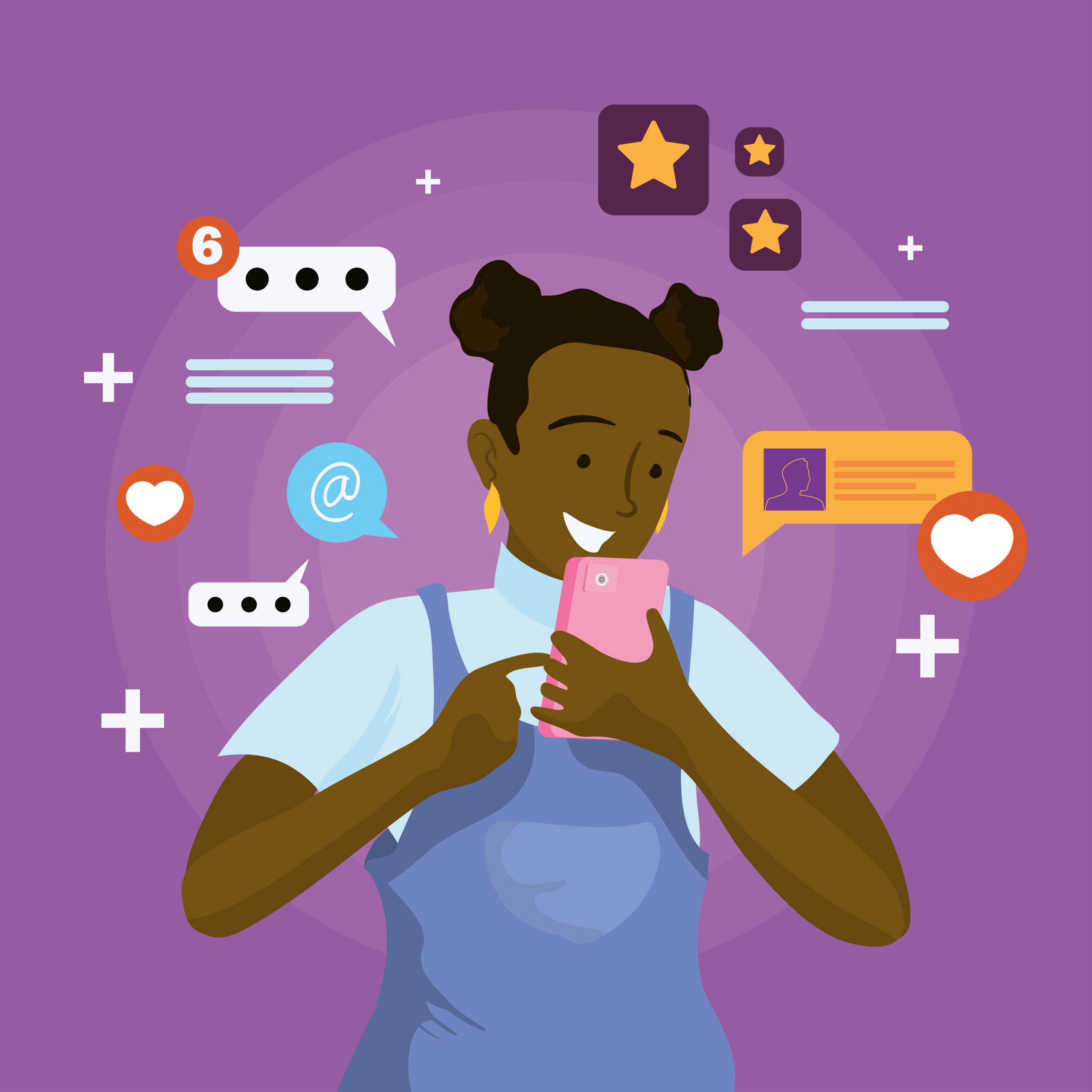Social media has become a central part of our lives, with millions of people around the world using platforms like Facebook, Instagram, Twitter, and TikTok daily. While it offers connectivity and instant access to information, studies show that excessive social media use can impact mental health in significant ways. This blog will explore the effects of social media on mental well-being and provide tips for managing a healthy relationship with it.
1. Social Media and Self-Esteem
One of the main ways social media impacts mental health is through its influence on self-esteem. Social media feeds are filled with curated images and moments that often portray an idealized version of life. Constant exposure to these polished images can lead to comparison and feelings of inadequacy. For example, seeing posts about others’ achievements or appearances can make some users feel that they are falling short, which can negatively affect self-esteem over time.
Tip: Limit comparison by reminding yourself that social media is a highlight reel. People tend to share only their best moments, not the struggles or imperfections they face.
2. Social Media and Anxiety
Social media can contribute to anxiety, particularly social anxiety. When users feel pressure to present a perfect online persona, it can lead to stress and anxious thoughts. The constant notifications likes, and comments may also keep users on edge, wondering how their posts are received or how they appear to others. This cycle of validation can increase anxiety, especially among teenagers and young adults.
Tip: Set specific times during the day to check social media. This can help reduce the compulsive urge to constantly monitor your feed.
3. The Role of Social Media in Depression
Research suggests a strong connection between social media use and symptoms of depression. Constant exposure to idealized images, coupled with the sense of missing out on events (known as FOMO), can lead to feelings of loneliness and sadness. Additionally, cyberbullying or negative comments can further amplify depressive symptoms, impacting one’s mental health.
Tip: Follow accounts that promote positivity and mental wellness. Muting or unfollowing negative accounts can help create a healthier social media environment.
4. Sleep Disruption
Social media can be addictive, making it easy to scroll late into the night. Using screens before bedtime can disrupt sleep patterns. The blue light emitted from devices interferes with melatonin production, the hormone that regulates sleep, leading to poor sleep quality and even insomnia. Poor sleep is directly linked to mental health issues, including heightened anxiety and depressive symptoms.
Tip: Avoid screen time at least one hour before bedtime. Consider setting a “do not disturb” feature on your phone to eliminate notifications during sleep hours.
5. Fear of Missing Out (FOMO)
FOMO, or the “fear of missing out,” is a common feeling triggered by social media. Seeing others attend events, travel, or enjoy social gatherings can make users feel like they’re missing out, leading to loneliness and dissatisfaction with their own lives.
Tip: Focus on your own experiences and make time for real-life connections. Practising gratitude for your unique life and accomplishments can help counteract feelings of FOMO.
6. Social Media and Body Image
For many, social media influences how they perceive their bodies. Influencers, celebrities, and friends often share images that conform to certain beauty standards, creating unrealistic expectations. This can lead to body dissatisfaction, eating disorders, or unhealthy behaviours, especially in young people who are still developing their self-image.
Tip: Follow body-positive accounts and people who promote healthy, realistic body images. Avoid accounts that promote unattainable or edited versions of beauty.

7. The Positive Side of Social Media
While there are negative impacts, social media also has positive aspects. It enables people to connect, offers support networks, and allows for sharing mental health resources. Many advocates use social media to raise awareness and help people feel less alone in their struggles.
Tip: Engage with supportive communities that focus on mental well-being and positive interactions.
8. Detoxing from Social Media
Taking breaks, or “social media detoxes,” can help improve mental health. Stepping away from screens allows for relaxation and promotes better mental clarity. Reducing social media use, even by a small amount, can improve mood and reduce stress.
Tip: Try a social media detox for a weekend or a week. Use the time to engage in other activities, like hobbies or exercise.
9. Setting Boundaries for Healthier Use
Creating boundaries is essential for a balanced relationship with social media. Setting time limits or specific usage rules can prevent excessive scrolling and maintain a healthier balance.
Tip: Set daily time limits for social media use, such as 30 minutes to an hour.
10. Seeking Professional Help
If you feel that social media is severely impacting your mental health, consider reaching out to a mental health professional. Therapists can provide guidance on managing social media-related stress and address any underlying mental health issues.
Final Thoughts
Social media can impact mental health in both positive and negative ways. By being mindful of how and when you use social media, you can take control of its effects on your well-being. Setting boundaries, following positive accounts, and taking breaks can help create a healthier social media experience. Remember, prioritizing mental health is more important than staying constantly connected online.









